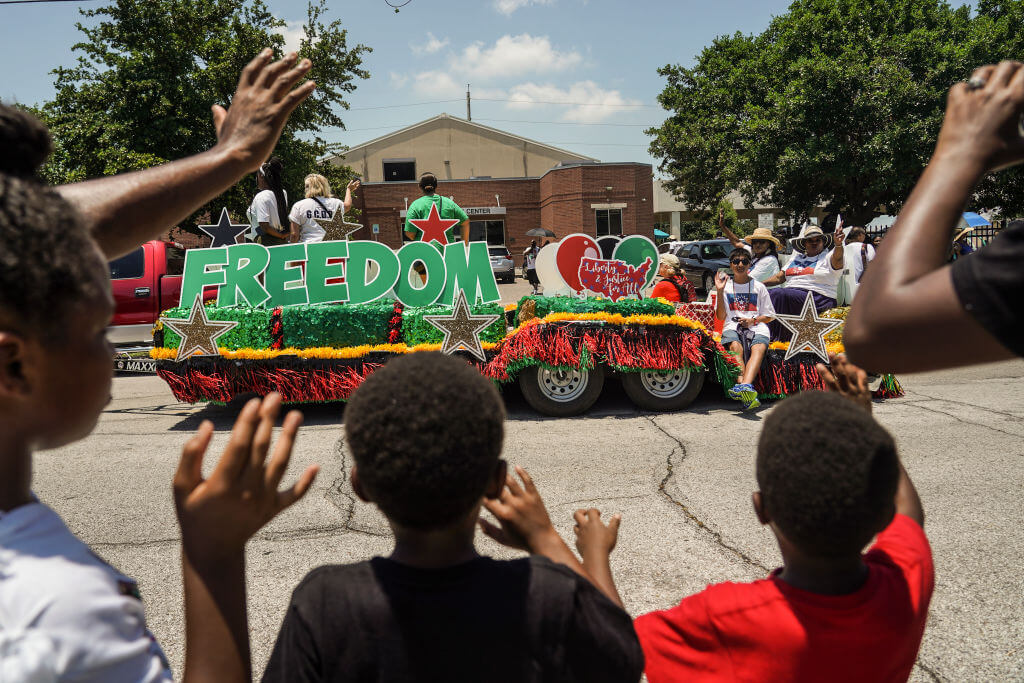Not just a second Passover: Juneteenth’s unfinished journey
More than sharing legacies, Jews can mark the holiday by working toward Black empowerment

Spectators watch Juneteenth Parade commemorating the end of slavery in the United States on June 19, 2021 in Galveston, Texas. Juneteenth celebrations, now recognized as a federal holiday, are taking place around the country in recognition of the emancipation of enslaved African Americans. Photo by Go Nakamura/Getty Images
If you or your shul are looking for ways to observe Juneteenth, consider a Black voter registration drive. And maybe a bouncy house.
But please, don’t call the 2-year-old federal holiday that commemorates the freeing of Black people from slavery a “second Passover.” It’s more analogous to the liberation of Nazi death camps.
Contrary to popular belief, Juneteenth was not the day that Black people in Galveston, Texas, learned they were free, 2 ½ months after Robert E. Lee’s surrender at Appomattox ended the Civil War.
Black people in Galveston were quite aware slavery was over. June 19, 1865, was the day Union troops commanded by Major Gen. Gordon Granger arrived to force the slaveholders to abide by the law at gunpoint.
Juneteenth does share commonalities with Passover. It took fixed bayonets to send the message to Southern slaveholders that their free labor was over; Pharaoh had to be compelled in plagues.
Just as the Nazis marched inmates out of the camps ahead of advancing Allied troops, Southern slaveholders moved their human chattel as Arkansas, Mississippi, Louisiana and Alabama fell to the Union. Texas was their last outpost.
To be sure, Juneteenth does share commonalities with Passover. It took fixed bayonets to send the message to Southern slaveholders that their free labor was over; Pharaoh had to be compelled in plagues. In neither case was true freedom achieved in a day. The children of Israel wandered in the desert for 40 years. And thousands of Black people continued to be enslaved after the Union Army’s Galveston deployment.
The main difference, however, is that Black Americans are still wondering when true equality will be achieved. Or better, equity — which today is under direct attack by states from Florida to Wisconsin as part of the right wing’s latest boogeyman of diversity, equity and inclusion.
Still, the day is worth observing, as Black communities as far away from Texas as Duluth, Minnesota, have been doing for years before the national holiday was designated. I’ve been a part of them, at events including food, concerts, games and even a bouncy house. What better way to celebrate freedom?
Significantly, many Juneteenth events are also true to the deeper spirit of the day, as an opportunity to foster Black empowerment. Thankfully, it no longer has to be enforced at the barrel of a gun — at least I hope it doesn’t — but with practical avenues for full participation in America’s democracy and abundance. That includes voter registration, affordable housing and job fair booths.
Because freedom was never achieved in a day, not even a national holiday.






















